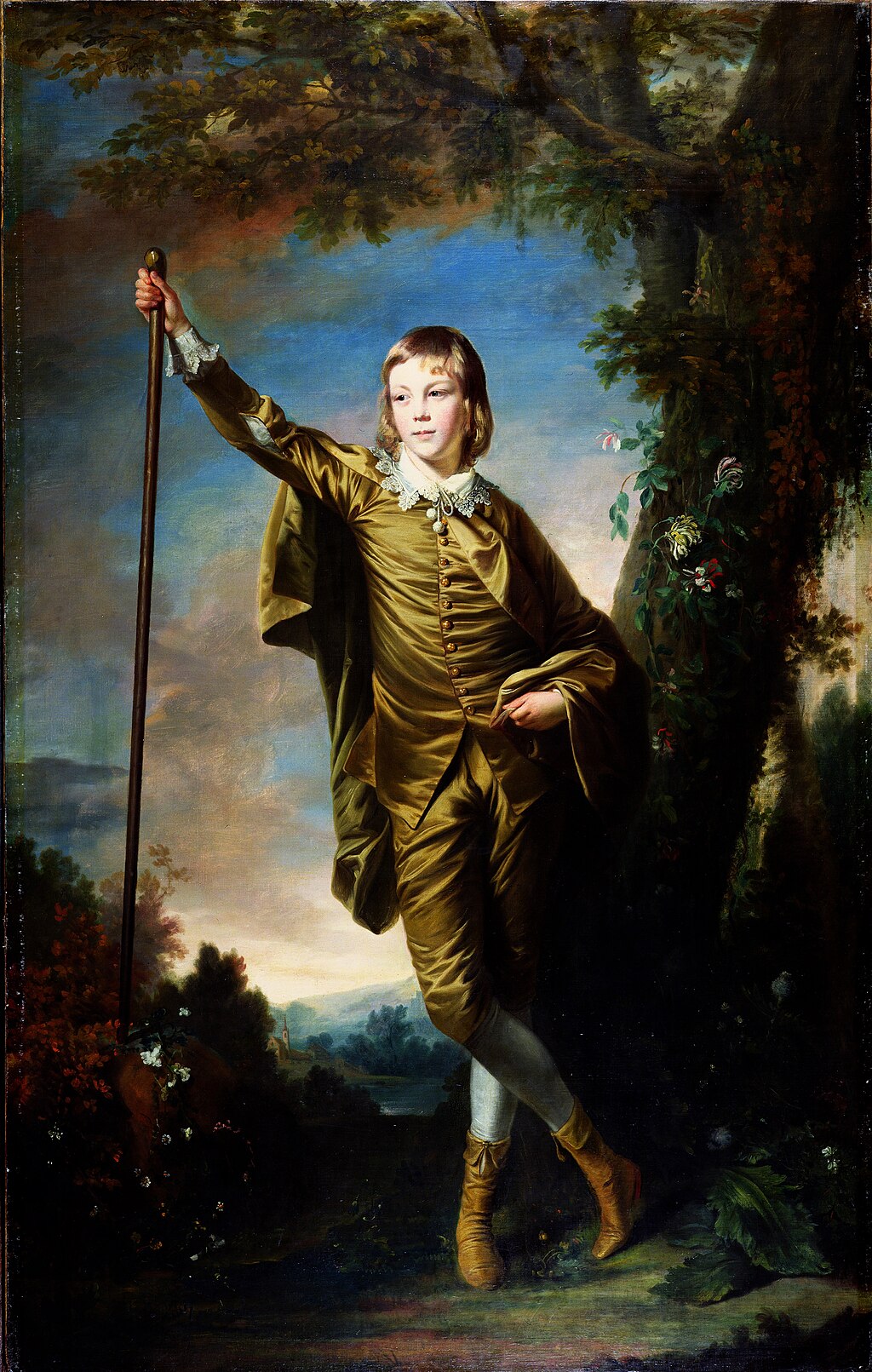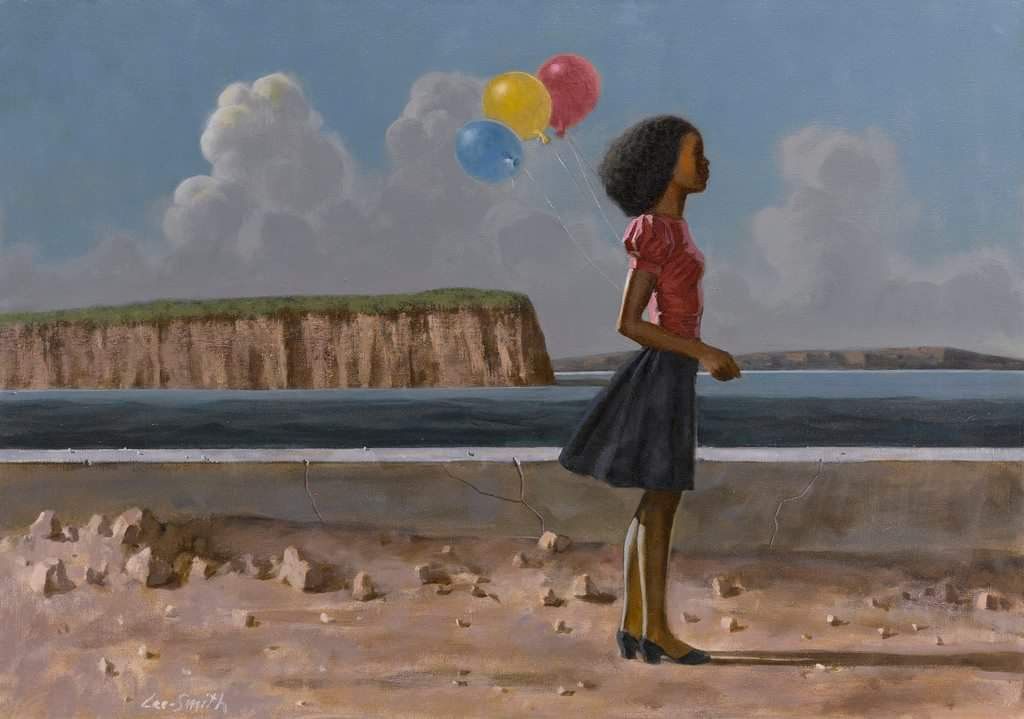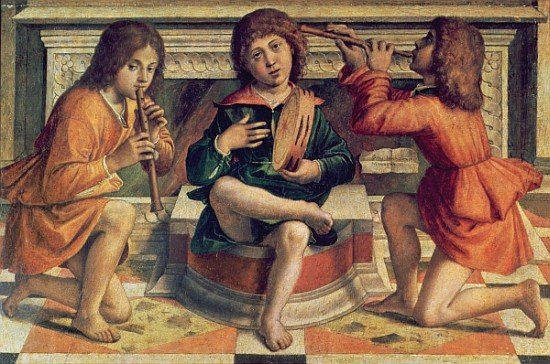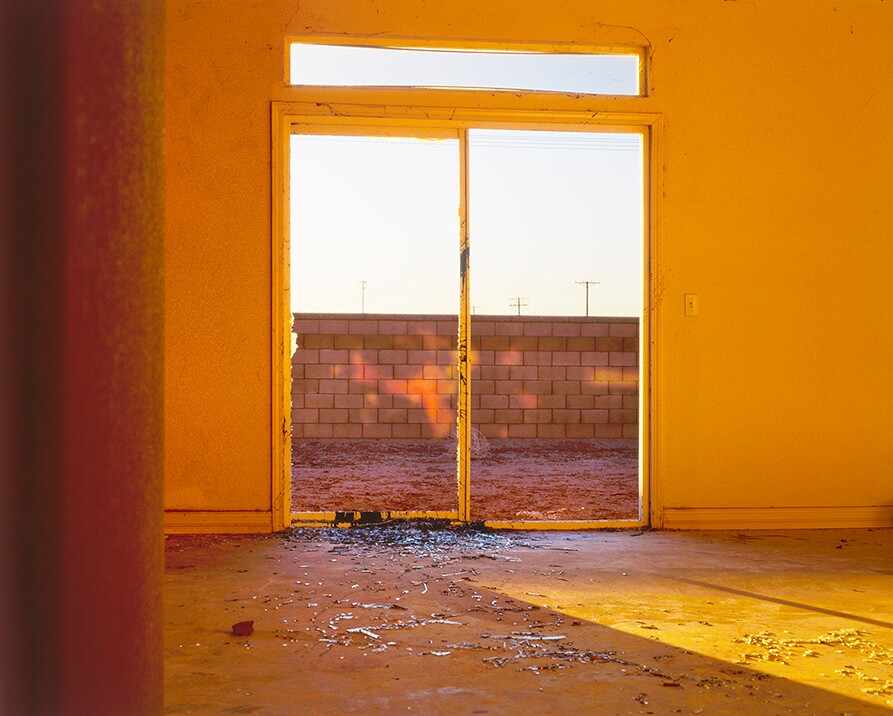(16 July 1723 – 23 February 1792)
Reynolds was the leading English portraitist of the 18th century. Through study of ancient and Italian Renaissance art, and of the work of Rembrandt, Rubens and Van Dyck, he brought great variety and dignity to British portraiture.
Reynolds was born at Plympton in Devon, the son of a headmaster and fellow of Balliol College, Oxford: a more educated background than that of most painters. He was apprenticed in 1740 to the fashionable London portraitist Thomas Hudson, who also trained Wright of Derby. He spent 1749-52 abroad, mainly in Italy, and set up practice in London shortly after his return.
He soon established himself as the leading portrait painter, though he was never popular with George III. He was a key figure in the intellectual life of London, and a friend of Dr Johnson. When the Royal Academy was founded in 1768, Reynolds was elected its first President. Although believing that history painting was the noblest work of the painter, he had little opportunity to practise it, and his greatest works are his portraits.
His paintings are not perfectly preserved due to faulty technique. The carmine reds have faded, leaving flesh-tones paler than intended, and the bitumen used in the blacks has tended to crack.



